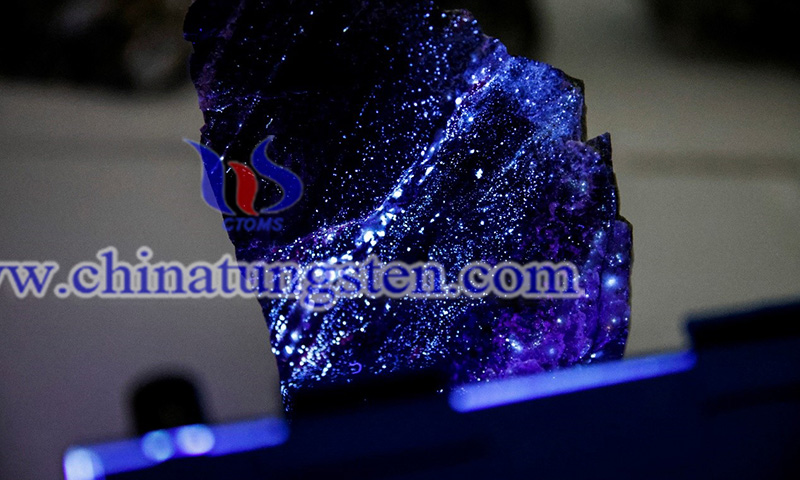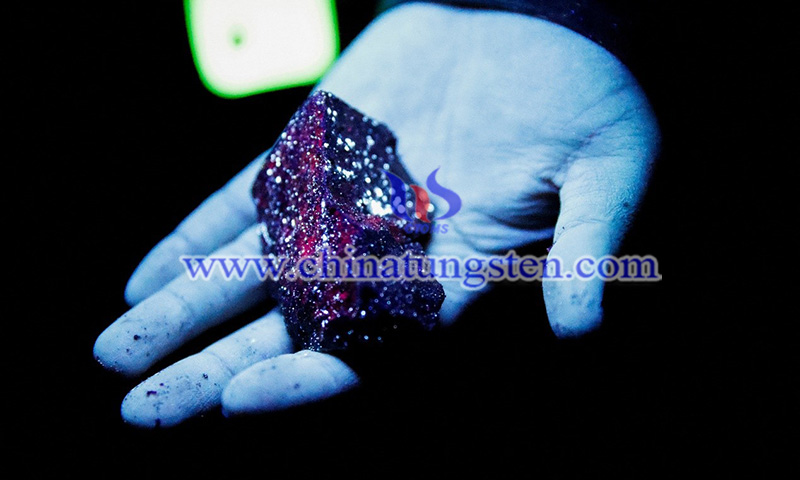South Korea Hunts Tungsten in Race for Rare Minerals –Ⅰ
- Details
- Category: Tungsten's News
- Published on Monday, 09 May 2022 11:25
The Sangdong tungsten mine, 180 kilometers southeast of Seoul, could be the catalyst for South Korea to break China's dominance of key minerals and lay claim to future raw materials, according to Reuters.
From telephones and chips to technologies such as electric cars and missiles, rare metals are of great value in the digital age, "Why is the Sangdong mine reopening now after 30 years? Because it means that sovereignty over the natural resources of rare metals will be returned to us," said Lee Dong-seob, vice president of mine owner Almonty Korea Tungsten Corp.

The Sangdong mine is one of at least 30 significant mines or processing plants worldwide that have started up or reopened outside of China in the past four years, according to a Reuters survey, and these projects also include lithium development in Australia, rare earths in the U.S. and tungsten (W) development in the U.K.
The scale of these programs illustrates the pressure felt by countries around the world to secure supplies of key minerals considered essential to the green energy transition, from lithium in electric vehicle batteries to magnesium in laptops and neodymium in wind turbines.
The International Energy Agency said last year that overall demand for the rare mineral is expected to increase fourfold by 2040. For those minerals used in electric vehicles and battery storage, demand is expected to grow 30-fold, it added.
Many countries view their mineral drives as a national security issue because China controls the extraction, processing or refining of many of these resources.

The Asian powerhouse is the largest supplier of critical minerals to the United States and Europe, according to a study by the China Geological Survey in 2019. The study found that China is the largest supplier of 13 of the 35 minerals listed as critical in the United States, including rare earth elements critical to clean energy technologies. It said China is the largest source of 21 key minerals to the European Union, such as antimony used in batteries.
Julian Kettle, senior vice president for metals and mining at consulting firm Wood MacKenzie, said, "In the key raw materials restaurant, China is sitting there eating dessert while the rest of the world is in a cab looking at the menu."
The stakes are particularly high in South Korea, home to major chip manufacturers such as Samsung Electronics. South Korea is the world's largest per capita consumer of W and relies on China for 95% of its W imports, a metal valued for its unparalleled strength and resistance to heat.
China controls more than 80 percent of the world's W supply, according to CRU Group, a London-based commodities analyst. Once a bustling town of 30,000 residents, the mine in Sandong, which now has just 1,000, has one of the world's largest tungsten mines and could produce 10 percent of the global supply when it opens next year, according to the mine's owner.
Lewis Black, chief executive of Almonty Industries, the Canadian parent company of Almonty Korea, told Reuters that the company plans to supply about half of the business' processed output to the South Korean domestic market as an alternative to Chinese supplies. "It's easy to buy from China, which is South Korea's largest trading partner, but they know they're overly dependent, Black said, adding, "You have to have a plan B now."
South Korea Hunts Tungsten in Race for Rare Minerals –Ⅱ
- Tungsten Manufacturer & Supplier, Chinatungsten Online: www.chinatungsten.com
- Tungsten News & Prices of China Tungsten Industry Association: www.ctia.com.cn
- Molybdenum News & Price: news.molybdenum.com.cn
- Tel.: 86 592 5129696; Fax: 86 592 5129797; Email: sales@chinatungsten.com



 sales@chinatungsten.com
sales@chinatungsten.com